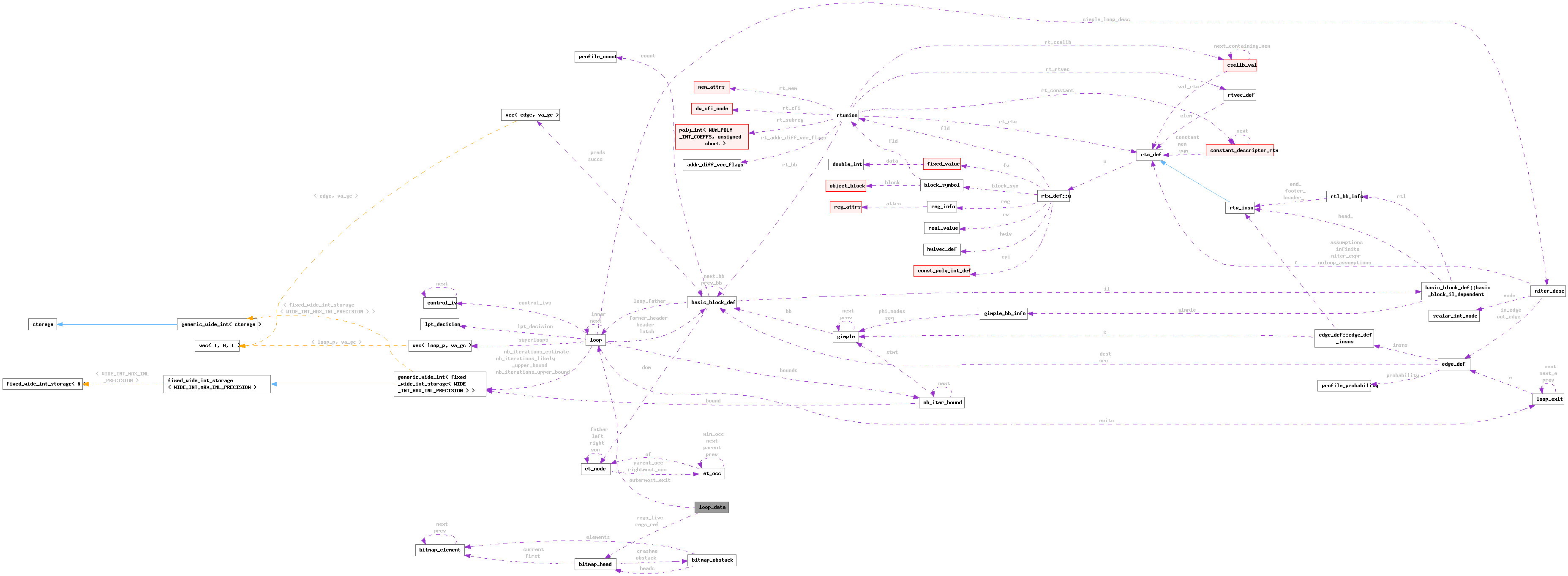loop_data Class Reference
Collaboration diagram for loop_data:

Data Fields | |
| class loop * | outermost_exit |
| bool | has_call |
| int | max_reg_pressure [N_REG_CLASSES] |
| bitmap_head | regs_ref |
| bitmap_head | regs_live |
Detailed Description
RTL-level loop invariant motion. Copyright (C) 2004-2026 Free Software Foundation, Inc. This file is part of GCC. GCC is free software; you can redistribute it and/or modify it under the terms of the GNU General Public License as published by the Free Software Foundation; either version 3, or (at your option) any later version. GCC is distributed in the hope that it will be useful, but WITHOUT ANY WARRANTY; without even the implied warranty of MERCHANTABILITY or FITNESS FOR A PARTICULAR PURPOSE. See the GNU General Public License for more details. You should have received a copy of the GNU General Public License along with GCC; see the file COPYING3. If not see <http://www.gnu.org/licenses/>.
This implements the loop invariant motion pass. It is very simple (no calls, no loads/stores, etc.). This should be sufficient to cleanup things like address arithmetics -- other more complicated invariants should be eliminated on GIMPLE either in tree-ssa-loop-im.cc or in tree-ssa-pre.cc. We proceed loop by loop -- it is simpler than trying to handle things globally and should not lose much. First we inspect all sets inside loop and create a dependency graph on insns (saying "to move this insn, you must also move the following insns"). We then need to determine what to move. We estimate the number of registers used and move as many invariants as possible while we still have enough free registers. We prefer the expensive invariants. Then we move the selected invariants out of the loop, creating a new temporaries for them if necessary.
The data stored for the loop.
Field Documentation
◆ has_call
| bool loop_data::has_call |
◆ max_reg_pressure
| int loop_data::max_reg_pressure[N_REG_CLASSES] |
Referenced by change_pressure().
◆ outermost_exit
| class loop* loop_data::outermost_exit |
◆ regs_live
| bitmap_head loop_data::regs_live |
Referenced by free_loop_data().
◆ regs_ref
| bitmap_head loop_data::regs_ref |
Referenced by free_loop_data().
The documentation for this class was generated from the following file: